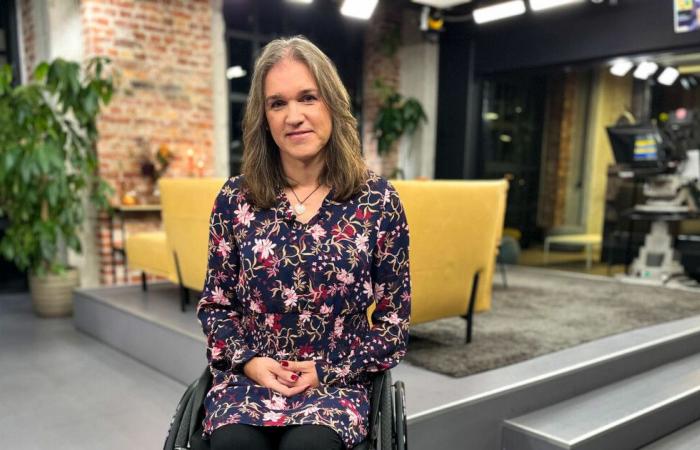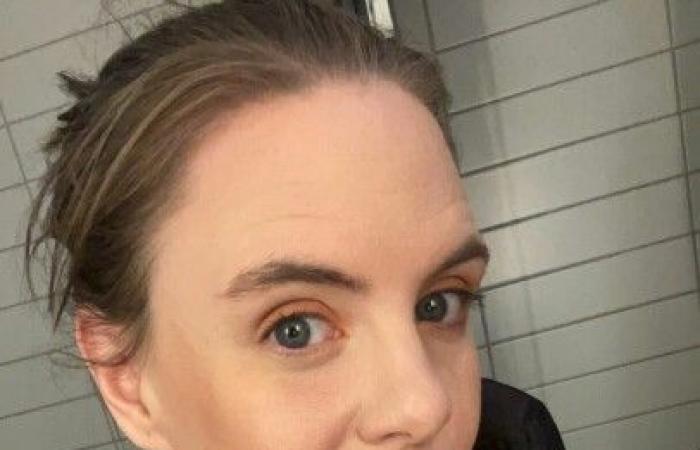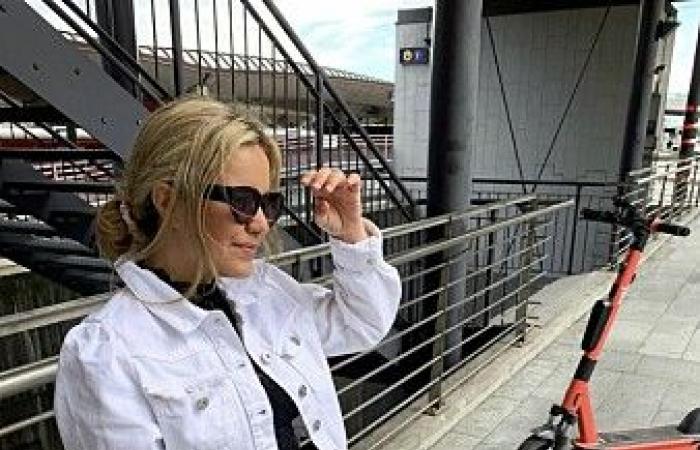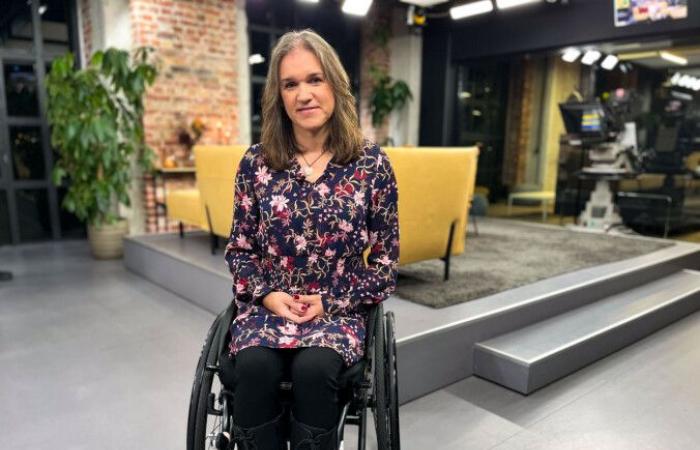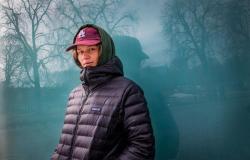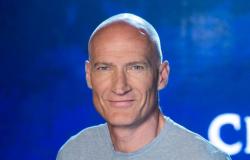Emma Sofie Grimstad (18) from Trondheim had her life turned upside down when she became seriously ill this summer.
She contracted an acute inflammatory disease, Guillain-Barré, which left her in a wheelchair for two months.
TOUGH TIME: Emma Sofie Grimstad says she had a tough summer when she ended up in a wheelchair. Photo: Private
– I was partially paralyzed and remember that I had no other choice but to sit in a wheelchair. I was mostly carried around the house by my father, says Grimstad to TV 2.
Going viral on Tiktok
In the interview with God Morgen Norge (GMN), Jørund Viktoria Alme (53) tells that she wished she had been born a woman – and was paralyzed from the waist down. She does this because she has a rare diagnosis.
See the full interview at the top of the story.
Alme goes on to say that she voluntarily sits in a wheelchair without having a disability. Grimstad reacts to this.
– There is a person with functional legs who chooses to sit in a wheelchair. But there are so many who don’t have that choice. I was in such a helpless situation. I was simply bored.
She wants to clarify that she has nothing against Alme. But reacts to the TV programme.
– I don’t think everything should get airtime. The interview can help to harm people who are in wheelchairs and who do not have a choice. It can even lead to suspicion of people with invisible illnesses, says Grimstad.
She chose to share her frustration on Tiktok, which went viral.
Grimstad does not think it is right that this is praised as “tough” and “courageous” in the TV 2 programme.
– I react to the fact that someone with functioning legs who chooses to sit in a wheelchair is praised in this way. It doesn’t quite understand.
Follows the reactions
Noomi Alexandersen (23) has cerebral palsy, which means that she does not have full dexterity in her left arm and foot. But she is almost fully functional, yet she allowed herself to be strongly provoked.

CRITICAL: Noomi Alexandersen is critical of the interview. Photo: Private
– This helps to ridicule those who face challenges related to their disabilities on a daily basis, says Alexandersen to TV 2.
She believes there are many people who do not get the recognition and support they need.
– It concerns the attitudes in society towards different types of disabilities. In addition to all the practical things – how things are not arranged enough for people and that you don’t get what you are entitled to, she says.
She says the feature in GMN made her angry.
– It felt like a sting. There was far too much positive focus on a person with functional legs who chooses to sit in a wheelchair.
Jørund Viktoria Alme says she understands that her story is difficult to understand.
– I don’t need sympathy or care, I use the wheelchair to function as best as possible in my life and in my job – not for attention.
Read the full response to Alme further down in the case.
Although Noomi Alexandersen mostly likes watching GMN, she thinks the program missed this time.
– I react to this being praised. There is an excessive focus on the choice Alme has made. The real challenges with those who have one or another form of disability should come to light more, so that there are actual changes in society, she says.
GMN says they have followed the reactions in social media closely and have seen that there is criticism and reactions.
– But we also register that there is an enormous amount of support. Especially from those who have read the whole story, says editor-in-chief Good morning Norway, Sissel Randsborg.
Read the full response to GMN further down in the case.
– Experience suspicion
Chair of the Young People with Disabilities, Ingrid Thunem, says she has personally received several inquiries.
– We are aware that many young disabled people react with frustration, anger and fear to the matter, we have a great understanding of this, Thunem to TV 2.

MEMBERS REACT: Ingrid Thunem in Young disabled people says the interview creates quite a few reactions among their members. Photo: Private
The umbrella organization consists of 38 organizations and groups of young people with disabilities and chronic illnesses. Together, these have over 25,000 members.
The chairman says that many wheelchair users, and especially walking wheelchair users, experience a great degree of suspicion and a lack of understanding from society.
– Many experience being accused of pretending they need aids, says Thunem.
Responds to missing critical questions
Guro Helene Sørdalen (25) from Kragerø has the eye disease Retinitis pigmentosa, which causes her to have a severely narrowed field of vision.
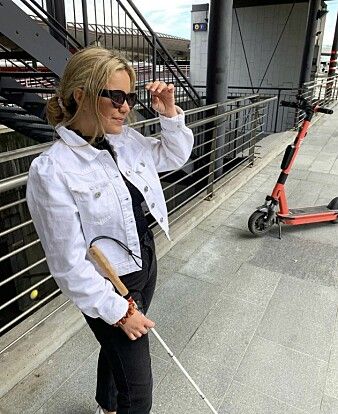
ENGAGED: Guro Helene Sørdalen says she is passionate about improving rights for the disabled. She missed critical questions to Alme during the TV interview. Photo: Private
She herself does not sit in a wheelchair, but uses a cane from time to time. Sørdalen missed several critical questions during the interview.
– I wondered how often Alme uses a wheelchair. How does she do it when she is at home or at work? Is she in a wheelchair all the time with all that entails, or only when it benefits her in some way?, she asks.
Sørdalen hoped that the conversation in the program could be more about how this might feel for others who are disabled or use aids.
– They were just getting into it, but it would have been interesting to hear more reflections on it, she says to TV 2.
Rare diagnosis
PRAY
In the interview with GMN, Alme talks openly about a very rare diagnosis called BID, which in English is an abbreviation for body integrity dysphoria.
According to Alme herself, this is a person’s deep feeling that certain body parts or body functions feel foreign or do not belong to oneself.
According to the great medical lesson, it is called apotemnophilia is a rare condition where the person is concerned with having a healthy body part amputated, for example parts of an arm or a leg.
TV 2 has made attempts to bring in independent professionals to explain what BID is, but has so far been unsuccessful.
– I myself have struggled with my own shame and prejudices for 50 years before I was so bothered by BID that I finally had to open up about it and get help, says Alme to TV 2.
She says that the wheelchair has given her a new and better life because it provides relief from the ailments she lives with.
– But it is difficult to understand because it is about mental relief and not physical challenges. As far as I can see, my use of a wheelchair does no harm to anyone, and I consume no scarce goods at the expense of others in society. I have a demanding job and pay my taxes with pleasure, she says.
Celebrates openness
Young disabled people say they support greater openness around various diagnoses and challenges. Still, they are worried.
– We can understand that one is afraid that a lack of understanding of the diagnosis of BID can lead to increased discrimination and hatred towards our members. This is not a single individual’s responsibility. This is about prejudice and structural discrimination, says Thunem to TV 2.
Sørdalen is happy that GMN chooses to highlight different voices.
– It is tough for Jørund to stand in the storm. The only way to break down prejudice is to talk about things.
Nevertheless, she thinks it is important to remember that disabled people are a minority who are systematically discriminated against and met with prejudice every single day.
– It is seen as a matter of course that we should want to be cured or that being disabled is a tragedy. Then it will be very strange to see someone who chooses it. Although this is completely real for Alme, many will feel stepped on, concludes Sørdalen.
Alme says she has chosen to be open about her diagnosis because she wishes more people to have a better life despite the diagnosis (BID).
– I try to work for diversity, inclusion and facilitation where I can. My story and my diagnosis are complicated and difficult to understand, and I really appreciate that so many people have chosen to get into this to understand better, she says.
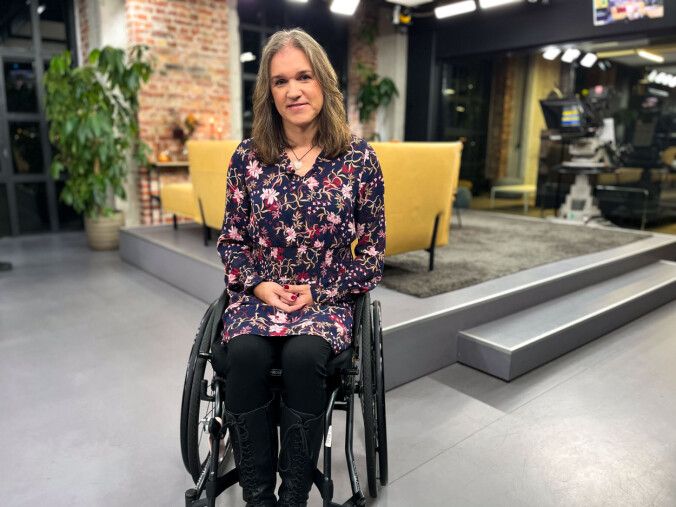
WANTS OPENNESS: Jørund Viktoria Alme wants to help others and hopes that openness can contribute to that. Photo: Bjarte Ragnhildstveit / Good Morning Norway
Considers several follow-up cases
Sissel Randsborg in GMN says the story of Alme and his wife is primarily a love story where the diagnosis of BID is part of this story.
– At GMN, we are keen to create transparency around difficult topics. This is the assessment behind this feature, she says to TV 2.
GMN says they have had several conversations with Jørund ahead of the interview.
– We take her seriously. She has made considerable reflections about appearing in the media with her story, and all that can entail. This is also not the first time she has spoken openly in the media about this. Jørund currently works in the financial environment in Oslo, and she does not take resources from anyone. Neither is handicap parking, which many people wonder about, she says.
She goes on to say that it is not meant to offend anyone.
– Thorough assessments were made in advance of this matter, and we respect that some may find it difficult.
Randsborg adds that the GMN editors are considering several follow-up cases related to the reactions.
– Everyone does not have to agree, but we believe it is important to speak out about this in order to create more tolerance and openness in society.
FYI: The journalist was engaged by Mastiff, which produces Good Morning Norway, in the period 2015 – 2021.

